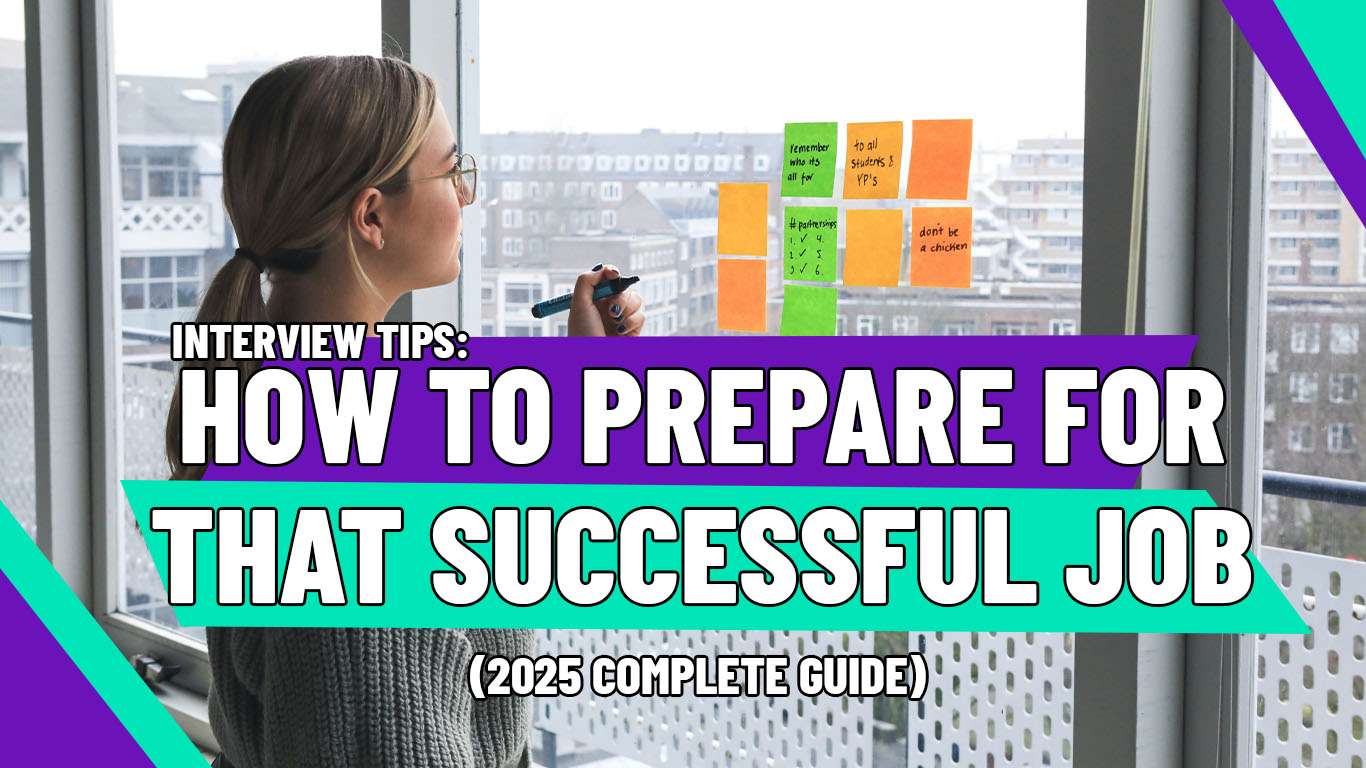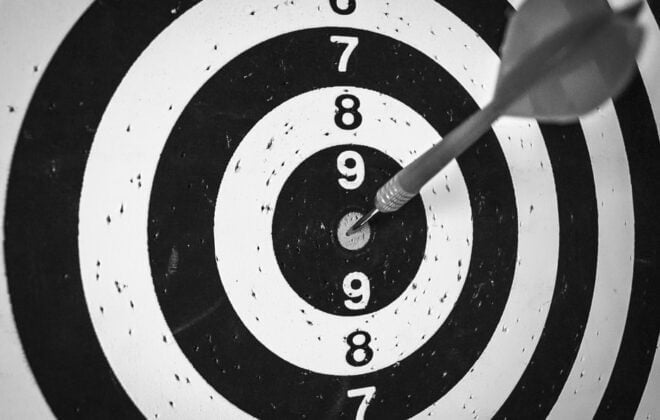
Interview Tips: How to Prepare for That Successful Job (2025 Complete Guide)
Feeling nervous about your upcoming interview? You’re not alone. For many job seekers, the interview is the most stressful part of the entire job search process – and unfortunately, it’s where most candidates fail to secure the position they want.
The harsh reality is that 91% of candidates aren’t properly prepared for interviews, leading to missed opportunities, rejected applications, and watching dream jobs slip away to better-prepared competitors.
Head Career Coach Langdon Rodda and Careers & Employment Program Director Naren Chellappah from Career Success Australia have guided thousands of professionals through successful interviews, helping them transform interview anxiety into confident performance and secure positions with higher salaries.
But here’s the good news: interview success is entirely within your control. With the right preparation system, you can walk into any interview feeling confident, prepared, and ready to showcase why you’re the perfect candidate for the role.
Why Most Job Interview Preparation Fails (And Costs You Opportunities)
Page Contents
Every week, talented professionals walk into interviews unprepared and walk out disappointed. They have the skills, experience, and qualifications – but they lack the interview preparation strategy that separates successful candidates from the rest.
Common interview failures include:
- Struggling to articulate achievements and value proposition
- Giving generic, unmemorable answers to standard questions
- Failing to research the company and role thoroughly
- Poor body language and communication during the interview
- Not asking insightful questions that demonstrate genuine interest
- Inadequate follow-up that leaves a weak final impression
The Cost of Poor Interview Preparation
When you don’t prepare properly for interviews, you’re not just risking one opportunity – you’re potentially derailing your entire career trajectory. Consider the real costs:
Immediate consequences:
- Missing out on salary increases of $5,000-$20,000 annually
- Staying in unsuitable roles longer than necessary
- Damage to professional confidence and self-esteem
- Wasted time and energy on unsuccessful applications
Long-term career impact:
- Delayed career progression and advancement opportunities
- Reduced lifetime earning potential
- Limited professional network growth
- Missed chances to work for preferred companies or industries
The competition advantage: While you’re struggling with basic interview preparation, other candidates are using proven systems to consistently perform well in interviews. They’re securing better positions, negotiating higher salaries, and advancing their careers more rapidly.
The anxiety cycle: Poor interview performance creates anxiety about future interviews, which leads to even worse preparation and performance. This negative cycle can persist for years, limiting career growth and satisfaction.
How to Prepare for a Successful Job Interview: 4-Stage System
Successful interview preparation follows a systematic approach that addresses every aspect of the interview process. This comprehensive system eliminates guesswork and ensures you’re fully prepared for any interview scenario.
Stage 1: Strategic Pre-Interview Preparation
Master Self-Awareness and Positioning
Before you can convince an employer to hire you, you must clearly understand your own value proposition. This isn’t just knowing your name and background – it’s deeply understanding your skills, motivations, career goals, and what makes you uniquely valuable.
Essential self-assessment questions:
- What are your core technical and soft skills?
- What professional achievements are you most proud of?
- What type of work environment and role energises you?
- How do your career goals align with this opportunity?
- What specific value can you bring to this organisation?
Company and Role Research Excellence
Thorough research transforms you from just another candidate into someone who clearly understands and wants this specific opportunity.
Research checklist:
- Company background: Mission, values, recent news, major clients, company culture
- Role specifics: Key responsibilities, required skills, reporting structure, success metrics
- Industry context: Market trends, challenges, opportunities affecting the organisation
- Interview team: Background of people you’ll meet, their roles and interests
- Preparation questions: What challenges is this team facing? How does this role contribute to company goals?
Technical Knowledge Preparation
Review the role requirements and ensure you can discuss relevant technical skills, tools, and methodologies confidently. Prepare specific examples that demonstrate your expertise in action.
Behavioural Question Mastery
Prepare compelling STAR (Situation, Task, Action, Result) stories that showcase your key competencies. Focus on recent, relevant, and robust examples that demonstrate measurable impact.
Common behavioural question themes:
- Leadership and teamwork examples
- Problem-solving and innovation scenarios
- Handling pressure and deadlines
- Overcoming challenges and setbacks
- Initiative and self-motivation instances
Strategic Question Preparation
Prepare 5-8 thoughtful questions that demonstrate genuine interest and strategic thinking about the role and organisation.
Effective question categories:
- Role-specific: “What does success look like in this position after 90 days?”
- Team dynamics: “How would you describe the collaborative style of this team?”
- Growth opportunities: “What professional development opportunities exist?”
- Company direction: “What are the biggest opportunities facing the organisation?”
Logistics and Presentation Planning
Plan every practical detail to eliminate stress on interview day:
- Professional attire: Conservative, well-fitted business clothing
- Travel planning: Route, timing, parking, public transport options
- Technology testing: Video call software, internet connection, lighting
- Materials preparation: Multiple resume copies, portfolio, notepad, pen
Stage 2: Interview Day Excellence
Physical and Mental Preparation
Start your interview day with routines that optimise your performance and confidence.
Morning preparation checklist:
- Quality sleep: 7-8 hours the night before for optimal cognitive performance
- Proper grooming: Professional appearance including hair, hygiene, appropriate attire
- Nutritious breakfast: Balanced meal to maintain energy and focus
- Arrival timing: Arrive 10-15 minutes early to settle and compose yourself
- Technology setup: For virtual interviews, test all systems 30 minutes beforehand
Professional Presence from Arrival
Your interview begins the moment you interact with anyone from the organisation. Treat every person with respect and professionalism, from security guards to receptionists to fellow candidates.
First impression excellence:
- Confident greeting: Firm handshake, eye contact, genuine smile
- Professional demeanour: Calm, courteous, and enthusiastic energy
- Respectful interaction: Polite conversation with all staff members
- Prepared mindset: Review key points and questions while waiting
Stage 3: Masterful Interview Performance
Powerful Communication Techniques
Your communication style during the interview often matters more than your actual answers. Master both verbal and non-verbal communication to create lasting positive impressions.
Body language excellence:
- Posture: Sit upright with shoulders back, avoiding slouching or rigidity
- Eye contact: Maintain natural, confident eye contact without staring
- Facial expressions: Genuine smile and engaged expressions throughout
- Hand gestures: Natural, purposeful movements that emphasise key points
- Active listening: Nod appropriately and lean slightly forward to show engagement
Verbal communication mastery:
- Clear articulation: Speak clearly and at moderate pace
- Confident tone: Project enthusiasm and certainty in your responses
- Structured answers: Use frameworks like STAR to organise your thoughts
- Concise responses: Provide comprehensive but focused answers
- Strategic pausing: Use brief pauses to collect thoughts and emphasise points
Question Response Strategies
For behavioural questions: Choose examples that are recent (within 2-3 years), relevant to the role, and demonstrate clear results. Use the STAR method to structure your response and quantify outcomes whenever possible.
For technical questions: Demonstrate your knowledge while explaining your thinking process. If you don’t know something, acknowledge it honestly and explain how you would find the solution.
For situational questions: Think through hypothetical scenarios systematically, explaining your reasoning and decision-making process. Reference relevant experience when possible.
Strategic Question Asking
When given the opportunity to ask questions, demonstrate your preparation and genuine interest in the opportunity.
Question timing strategies:
- Save 2-3 most important questions for the formal Q&A period
- Ask clarifying questions during the interview when appropriate
- Reference earlier conversation points in your questions to show active listening
Stage 4: Post-Interview Follow-Up Excellence
Immediate Thank-You Communication
Send a personalised thank-you email within 24 hours of your interview. This isn’t just politeness – it’s a strategic opportunity to reinforce your candidacy.
Effective thank-you email elements:
- Gratitude: Thank interviewer for their time and insights
- Key points reinforcement: Briefly restate why you’re excited about the opportunity
- Value addition: Include any relevant information you forgot to mention
- Next steps: Reference timeline they provided and your continued interest
Strategic Follow-Up Communication
If you don’t hear back within the timeframe they specified, send a polite follow-up email that reaffirms your interest and offers to provide additional information.
Follow-up best practices:
- Wait until after their stated timeline before following up
- Keep the tone professional and enthusiastic, not desperate
- Offer to provide references, portfolio samples, or additional information
- Reiterate specific aspects of the role that excite you
Continuous Improvement Process
After each interview, conduct a brief self-assessment to identify areas for improvement:
- Which questions were challenging and how could you improve your answers?
- What feedback did you receive that you can apply to future interviews?
- What aspects of your preparation worked well and should be repeated?
- How can you refine your stories and examples for better impact?
Interview Preparation Tips by Interview Type
Phone and Video Interview Success
Remote interviews require modified preparation strategies to overcome the limitations of technology-mediated communication.
Phone interview excellence:
- Environment: Choose quiet location with excellent reception
- Materials: Keep resume, job description, and notes easily accessible
- Energy: Stand during the call to project confidence and energy
- Clarity: Speak slightly slower and more clearly than in-person
- Listening: Allow for technology delays and avoid interrupting
Find out more: How to nail Phone Interview Questions & Answers to Get Hired
Video interview mastery:
- Technology: Test camera, microphone, and software beforehand
- Lighting: Position yourself facing a window or use additional lighting
- Background: Choose clean, professional background or use virtual background
- Eye contact: Look at camera, not screen, when speaking
- Framing: Position camera at eye level with head and shoulders visible
Behavioural Interview Preparation
Behavioural interviews assess how you’ve handled situations in the past to predict future performance. Preparation for these interviews requires specific story development and practice.
STAR Method Mastery:
- Situation: Set context with specific, relevant background
- Task: Explain your responsibility and what needed to be accomplished
- Action: Describe steps you took, focusing on your individual contribution
- Result: Share measurable outcomes and lessons learned
Story Development Strategy: Prepare 8-10 detailed STAR stories covering different competencies:
- Leadership and team management
- Problem-solving and analytical thinking
- Communication and stakeholder management
- Innovation and process improvement
- Resilience and handling setbacks
- Initiative and self-direction
Case Study Interview Preparation
Common in consulting, finance, and management roles, case studies assess your analytical thinking and problem-solving approach under pressure.
Case interview framework:
- Clarify the problem: Ask questions to understand the scope and objectives
- Structure your approach: Break down the problem into manageable components
- Analyse systematically: Work through each component logically
- Synthesise findings: Draw conclusions and make recommendations
- Communicate clearly: Explain your reasoning throughout the process
Preparation strategies:
- Practice with online case study resources
- Develop structured problem-solving frameworks
- Improve mental math and estimation skills
- Practice explaining your thinking process aloud
Quick Job Interview Salary Negotiation Tips On That First Interview
When and How to Discuss Salary
Salary discussions require careful timing and preparation to avoid undermining your candidacy while ensuring fair compensation.
Optimal timing strategies:
- Let them bring it up first: Focus initial interviews on demonstrating value
- After receiving an offer: Negotiate once you have a concrete offer in writing
- Research thoroughly: Know market rates for your experience and location
- Consider total package: Evaluate benefits, professional development, and growth opportunities
Negotiation preparation:
- Market research: Use salary surveys, Glassdoor, and industry reports
- Value documentation: Prepare examples of your potential contribution
- Range preparation: Know your minimum acceptable offer and ideal target
- Alternative benefits: Consider flexible work, additional leave, or professional development
Interview Mistakes That Ruin Your Chances of Success
Preparation mistakes:
- Failing to research the company and role thoroughly
- Not preparing specific examples and stories
- Overlooking logistics like travel time and technology testing
- Neglecting to prepare thoughtful questions to ask
Performance mistakes:
- Speaking negatively about previous employers or colleagues
- Providing vague, generic answers without specific examples
- Failing to ask questions or asking only about benefits and salary
- Poor body language that projects disinterest or nervousness
Follow-up mistakes:
- Not sending thank-you emails within 24 hours
- Following up too frequently or with generic messages
- Failing to address any concerns raised during the interview
- Not maintaining professional communication throughout the process
Job Interview Preparation: Frequently Asked Questions
How long should I prepare for each interview?
Dedicate 2-3 hours of focused preparation for each interview, plus ongoing skill development and story refinement.
What if I don’t have much experience to draw from?
Use examples from education, volunteering, sports, personal projects, or part-time work. Focus on transferable skills and learning agility.
How do I handle nerves and interview anxiety?
Thorough preparation builds confidence. Practice meditation, visualisation, and mock interviews. Remember that some nervousness is normal and shows you care.
Should I send the same thank-you email to multiple interviewers?
Personalise each email by referencing specific aspects of your conversation with each person.
What if I realise I gave a poor answer during the interview?
Address it in your thank-you email by providing additional context or a better example that demonstrates the skill they were assessing.
How do I prepare for technical questions in my field?
Review job requirements, practice explaining complex concepts simply, and prepare examples of how you’ve applied technical skills to solve real problems.
Prepare for Your Next Job Interview Success
Interview success isn’t about luck or natural charisma – it’s about systematic preparation and strategic execution. The candidates who consistently perform well in interviews follow proven preparation systems and continuously refine their approach.
At Career Success Australia, we specialise in transforming interview anxiety into confident performance. Our proven preparation methods have helped thousands of professionals secure their ideal roles, negotiate higher salaries, and advance their careers more rapidly.
Don’t leave your next interview to chance. Book a free 20-minute consultation with Career Success Australia today. We’ll assess your current interview preparation approach, identify areas for improvement, and provide personalised strategies to help you stand out from the competition.
Your dream job is waiting – let us help you prepare to win it.
Careers Team @ CSA




